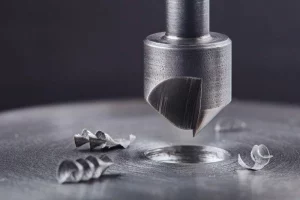Boost business sustainability by investing in sustainable metalworking equipment. Reduce energy usage, manage waste efficiently, control emissions, and adopt advanced technologies. Enjoy environmental benefits like lowered impact, long-term cost savings, improved efficiency, and reduced operational expenses. Innovations such as energy-efficient machinery, recycled materials, and smart technology enhance sustainability. Consider economic advantages like reduced costs, longer equipment lifespan, and improved brand reputation. Implement eco-friendly practices, choose equipment wisely, ensure maintenance, train staff, and monitor performance for lasting benefits. Improve operations sustainably for long-term success and environmental stewardship.
Key Takeaways
- Energy-efficient machinery reduces operational costs and environmental impact.
- Recycle metal scraps for sustainable material usage and cost savings.
- Invest in eco-friendly lubricants to minimize environmental footprint.
- Implement water-saving technologies for efficient metalworking processes.
- Choose durable equipment aligned with environmental goals for enhanced sustainability.
Challenges in Metalworking Sustainability
Within the realm of metalworking sustainability, industry professionals are faced with a multitude of challenges that require strategic and inventive solutions. Issues such as energy usage, waste management, and emissions control present significant hurdles. Implementing efficient processes, adopting advanced technologies, and promoting a culture of sustainability are key strategies to overcome these obstacles, nurturing a more environmentally responsible and economically viable metalworking industry.
Importance of Sustainable Equipment
Sustainable equipment plays a vital role in promoting environmental sustainability within metalworking operations. By investing in sustainable equipment, businesses can significantly reduce their environmental impact, contributing to a greener future. Furthermore, sustainable equipment often leads to long-term economic benefits through improved efficiency and reduced operational costs.
Sustainability in Equipment
Maximizing operational efficiency and longevity in businesses hinges on the pivotal factor of incorporating sustainable equipment solutions.
- Energy-efficient machinery reduces operational costs.
- Use of recycled materials minimizes environmental impact.
- Implementation of smart technology boosts productivity.
- Regular maintenance prolongs the lifespan of equipment.
- Investing in durable equipment leads to long-term savings.
Environmental Impact Reduction
Operating a business with a focus on environmental sustainability necessitates a mindful approach towards reducing the ecological footprint through the implementation of sustainable metalworking equipment solutions. By utilizing energy-efficient machines, recycling scrap metal, and implementing eco-friendly manufacturing processes, businesses can significantly decrease their environmental impact. Sustainable equipment not only minimizes waste but further promotes a greener and more responsible approach to metalworking, aligning with broader sustainability goals.
Economic Benefits of Sustainability
Implementing environmentally friendly metalworking equipment can yield significant economic benefits for businesses seeking to improve their sustainability efforts.
- Reduced energy costs
- Lower maintenance expenses
- Longer equipment lifespan
- Compliance with regulations
- Enhanced brand reputation
Environmental Benefits of Sustainable Metalworking
Implementing eco-friendly metalworking practices not only reduces the environmental impact but promotes sustainability within the industry. By incorporating sustainable material usage, metalworking processes can significantly decrease their carbon footprint and contribute to a greener environment. These environmental benefits of sustainable metalworking pave the way for a more responsible and efficient approach to industrial operations.
Eco-Friendly Metalworking Practices
In the domain of metalworking, embracing eco-friendly practices not only promotes environmental stewardship but enhances operational efficiency and contributes to sustainable business models.
- Implementing energy-efficient equipment
- Recycling metal scraps
- Using eco-friendly lubricants
- Reducing water consumption
- Adopting sustainable packaging practices
Sustainable Material Usage
Utilizing sustainable materials in metalworking processes not only reduces environmental impact but promotes a more resilient and ethical approach to manufacturing practices. By incorporating recycled metals, responsibly sourced raw materials, and implementing efficient material usage strategies, businesses can significantly decrease their carbon footprint and contribute to a healthier planet. Embracing sustainable material usage in metalworking is key to nurturing a greener and more sustainable future for the industry.
Economic Advantages of Sustainable Solutions
Amidst the evolving landscape of business practices, the integration of sustainable solutions presents unmatched economic benefits for organizations seeking long-term viability and growth.
- Decreased operational costs through energy efficiency measures
- Boosted brand reputation leading to increased customer loyalty
- Access to government incentives and grants promoting sustainability
- Improved employee morale and productivity
- Long-standing cost savings as a result of diminished waste and resource consumption
Innovations in Sustainable Metalworking
Amid the dynamic domain of metalworking, state-of-the-art innovations are revolutionizing the industry towards sustainable practices. Innovations such as advanced recycling technologies, eco-friendly lubricants, and energy-efficient machinery are paving the way for a greener metalworking sector. These developments not only reduce environmental impact but also boost operational efficiency, positioning businesses for long-term success in a sustainable future.

Implementing Sustainable Practices
Implementing sustainable practices in metalworking operations is pivotal for promoting environmental stewardship and enhancing long-term business resilience.
- Utilizing energy-efficient machinery
- Implementing recycling programs for metal scraps
- Investing in water-saving technologies
- Adopting eco-friendly lubricants and coolants
- Training employees on sustainable practices
Choosing the Right Equipment
In metalworking operations, the foundation of sustainable practices lies in selecting the appropriate equipment that aligns with environmental goals and operational efficiency. Choosing the right equipment involves considering factors such as energy efficiency, material wastage reduction, and overall equipment durability. By investing in modern, environmentally friendly machinery, businesses can bolster their sustainability efforts while improving productivity and reducing environmental impact.
Maintenance and Longevity
Addressing the critical aspects of preventive maintenance, extending the lifespan of metalworking machinery, and improving efficiency through regular upkeep are integral for ensuring the longevity of sustainable metalworking equipment. By prioritizing preventive maintenance schedules and adopting proactive measures, businesses can significantly reduce the risk of unexpected breakdowns and costly repairs, ultimately contributing to improved operational sustainability. Embracing a culture of proactive maintenance not only boosts the durability of machinery but also optimizes performance, leading to greater productivity and long-term cost savings.
Preventive Maintenance Importance
Considering the critical role of maintenance in prolonging the lifespan and efficiency of equipment, preventive maintenance stands out as a fundamental pillar for business sustainability in the metalworking industry.
- Regularly scheduled inspections and maintenance checks
- Timely replacement of worn-out parts
- Lubrication of moving components
- Calibration of equipment to guarantee accuracy
- Training programs for staff on proper equipment handling and maintenance
Extending Machine Lifespan
To maximize the operational lifespan of metalworking equipment, implementing a proactive maintenance strategy is vital for business sustainability and efficiency. Regular maintenance checks, timely repairs, and proper lubrication can significantly prolong the lifespan of machines, reducing downtime and repair costs. By prioritizing maintenance, businesses can guarantee smooth operations, boost productivity, and ultimately contribute to long-term sustainability goals.
Efficiency Through Upkeep
Ensuring consistent and proactive preservation practices is imperative for optimizing efficiency and extending the longevity of metalworking apparatus in a sustainable business environment.
- Implement regular upkeep schedules.
- Use high-quality lubricants for machinery.
- Train staff on proper equipment handling.
- Conduct routine inspections for wear and tear.
- Invest in advanced monitoring systems for predictive upkeep.
Training for Sustainable Operations
Amidst the push towards sustainability in the metalworking sector, the vital role of comprehensive training for sustainable operations cannot be overstressed. Proper training equips employees with the knowledge and skills needed to implement sustainable practices effectively. By investing in training programs focused on sustainable metalworking equipment, businesses can guarantee that their operations align with eco-friendly practices, leading to improved business sustainability and a positive impact on the environment.
Monitoring Sustainable Performance
Incorporating a system to monitor sustainable performance is paramount for businesses committed to improving their sustainability efforts in metalworking operations.
- Implement real-time data tracking technologies.
- Conduct regular audits to assess environmental impact.
- Set measurable sustainability goals and targets.
- Utilize Key Performance Indicators (KPIs) to track progress.
- Engage employees in sustainability initiatives for improved performance.
Frequently Asked Questions
How Can Businesses Overcome Challenges in Metalworking Sustainability?
Businesses can overcome challenges in metalworking sustainability by implementing efficient waste management systems, adopting renewable energy sources, and investing in eco-friendly equipment. Continuous training for employees on sustainable practices and monitoring environmental impact are additionally vital.
Why Is It Important to Invest in Sustainable Equipment for Metalworking?
Investing in sustainable equipment for metalworking is essential for reducing environmental impact, enhancing operational efficiency, and improving brand reputation. Sustainable practices align with global trends, regulatory requirements, and consumer preferences, nurturing long-term business success and resilience.
What Are the Environmental Benefits of Using Sustainable Metalworking Solutions?
Utilizing sustainable metalworking solutions can lead to reduced energy usage, lower carbon emissions, and minimized waste generation. By adopting environmentally friendly practices, businesses can contribute to environmental preservation, nurturing a greener and more sustainable future.
How Can Businesses Benefit Economically From Implementing Sustainable Metalworking Practices?
Businesses can benefit economically from implementing sustainable metalworking practices through reduced energy usage, lower waste generation, and improved operational efficiency. These practices lead to cost savings, increased profitability, improved brand reputation, and access to new markets.
What Are Some Innovative Technologies Being Used in Sustainable Metalworking Processes?
Advanced technologies in sustainable metalworking processes include laser cutting, water jet cutting, and plasma cutting. These methods reduce material waste, energy consumption, and emissions, promoting environmental sustainability while enhancing productivity and cost-efficiency in metal fabrication.
Conclusion
In summary, sustainable metalworking equipment plays a crucial role in advancing business sustainability objectives by reducing environmental impact and improving operational efficiency. Through the integration of state-of-the-art technologies and practices in metalworking processes, organizations can achieve a harmonious balance between economic growth and environmental stewardship. By embracing sustainable solutions, companies can propel themselves towards a more sustainable and prosperous future where profitability and environmental responsibility coexist seamlessly.
You May Also Like:





